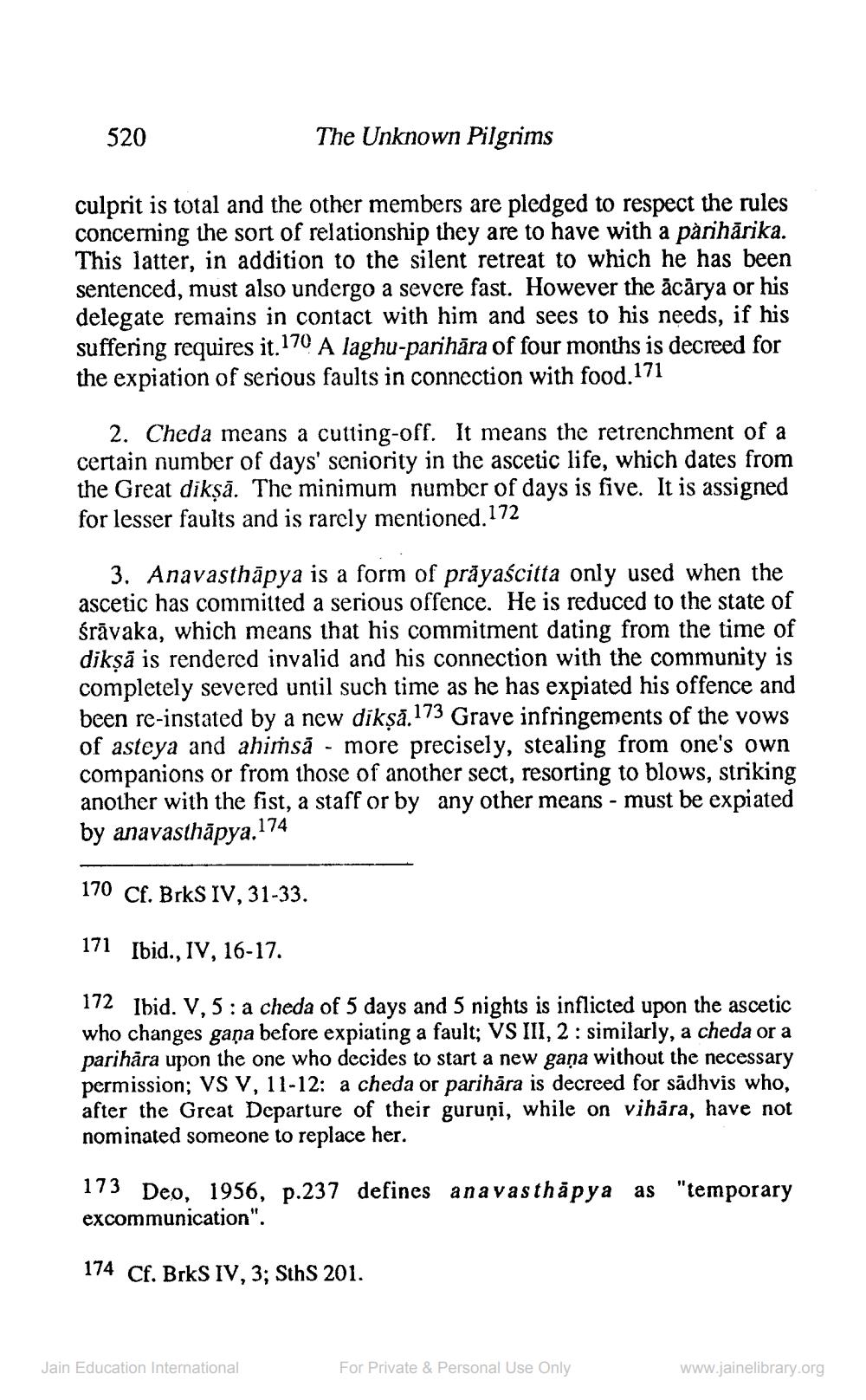________________
520
The Unknown Pilgrims
culprit is total and the other members are pledged to respect the rules concerning the sort of relationship they are to have with a pàrihārika. This latter, in addition to the silent retreat to which he has been sentenced, must also undergo a severe fast. However the ācārya or his delegate remains in contact with him and sees to his needs, if his suffering requires it.170 A laghu-parihāra of four months is decreed for the expiation of serious faults in connection with food.171
2. Cheda means a cutting-off. It means the retrenchment of a certain number of days' seniority in the ascetic life, which dates from the Great dikṣā. The minimum number of days is five. It is assigned for lesser faults and is rarely mentioned. 172
3. Anavasthāpya is a form of prāyaścitta only used when the ascetic has committed a serious offence. He is reduced to the state of śrāvaka, which means that his commitment dating from the time of dikşā is rendered invalid and his connection with the community is completely severed until such time as he has expiated his offence and been re-instated by a new dikṣā.173 Grave infringements of the vows of asteya and ahiṁsā - more precisely, stealing from one's own companions or from those of another sect, resorting to blows, striking another with the fist, a staff or by any other means - must be expiated by anavasthāpya.174
170 Cf. Brks IV, 31-33.
171 Ibid., IV, 16-17.
172 Ibid. V, 5: a cheda of 5 days and 5 nights is inflicted upon the ascetic who changes gana before expiating a fault; VS III, 2: similarly, a cheda or a parihara upon the one who decides to start a new gaṇa without the necessary permission; VS V, 11-12: a cheda or parihāra is decreed for sādhvis who, after the Great Departure of their guruņi, while on vihära, have not nominated someone to replace her.
173 Deo, 1956, p.237 defines anavasthāpya as "temporary excommunication".
174 Cf. Brks IV, 3; Sths 201.
Jain Education International
For Private & Personal Use Only
www.jainelibrary.org




